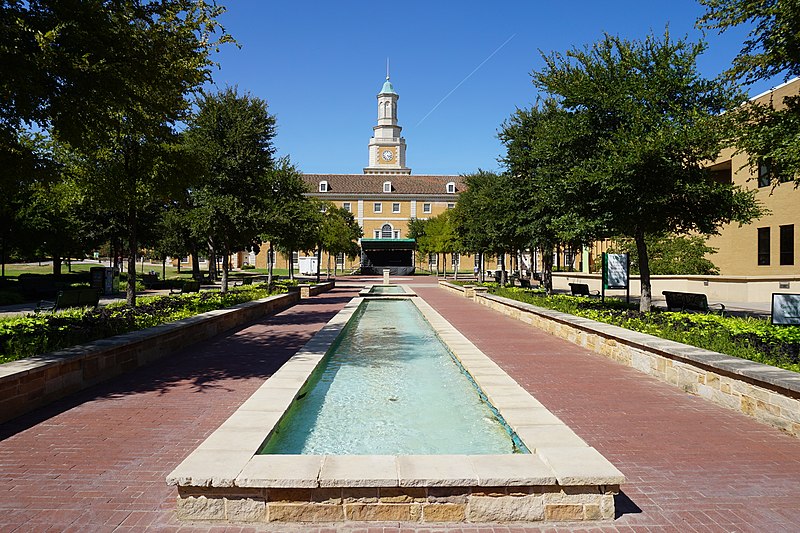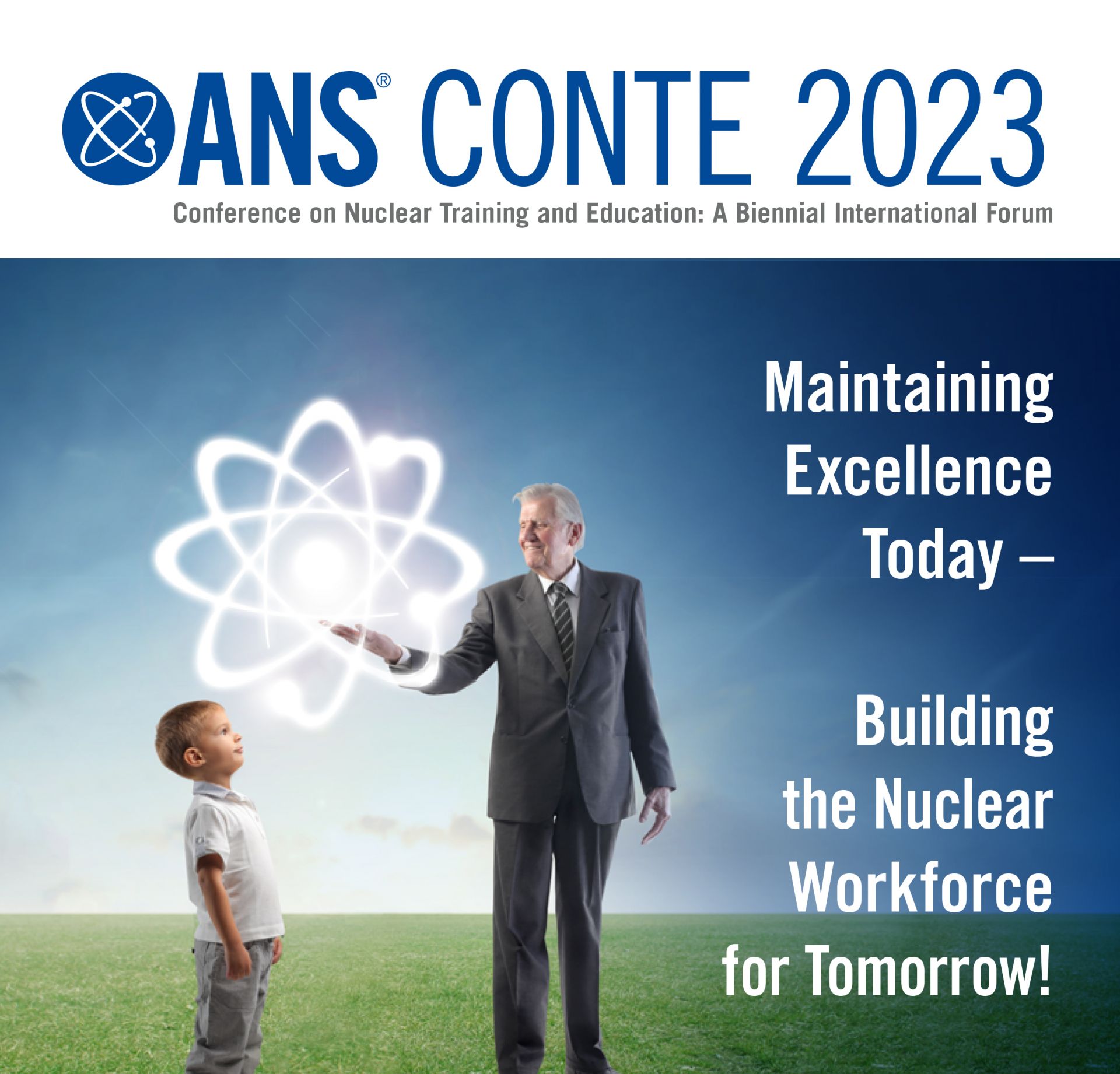Jared Wicker of SRNS explains how different technologies are used to monitor the environment at SRS. (Photo: DOE)
Claflin University students recently toured the Department of Energy’s Savannah River Site in South Carolina to learn about the facilities and occupations there.
ANS Executive Director/CEO Craig Piercy introduces presenter Candace Davison at the first Nuclear Energy 101 talk of 2023.
Nuclear Energy 101, a course for congressional staffers in D.C., is back. After a hiatus of a few years, the American Nuclear Society hosted the first session of the five-part course on March 1 in the Rayburn House Office Building. This educational series has always been a great—and popular—tool for ANS to network with congressional staff and explain the basics of nuclear science and technology. Now that the country has returned (in many ways) to pre-pandemic ways, ANS thought it was the perfect time to relaunch the Nuclear Energy 101 program.
The three winners of NASA’s Power to Explore Student Writing Challenge, are, left to right, Luca Pollack, Rainelle Yasa, and Audrielle Paige Esma. (Image: NASA/Kristin Jansen and Gayle Dibiasio)
Three winners have been announced in NASA’s Power to Explore Student Writing Challenge, in which U.S. students in kindergarten through 12th grade could participate by writing about imaginary space missions using radioisotope power systems (RPSs). Out of almost 1,600 submitted entries, 45 semifinalists, and nine finalists, Luca Pollack of Carlsbad, Calif. (in the K–4th grade category), Rainelle Yasa of Los Angeles, Calif. (in the grades 5–8 category), and Audrielle Paige Esma of Wildwood, Fl. (in the grades 9–12 category) snagged the top prize in their age groups. The April 25 announcement by NASA includes links to the winning essays.
A south-facing view of the Dillard Science and Engineering Research Center at Abilene Christian University, scheduled for completion in the summer of 2023. The new facility will provide space for ACU’s NEXT Lab, as well as for research in chemistry, physics, and engineering.
Abilene Christian University’s Nuclear Energy eXperimental Testing (NEXT) Lab continues to make progress toward building a molten salt research reactor (MSRR) on the university’s campus. NEXT Lab submitted an application for a construction permit to the Nuclear Regulatory Commission last August, and in November the agency announced it had docketed the application—the first for a new research reactor in more than 30 years.
The University of North Texas, one of the NRC grant recipients. (Photo: Michael Barera)
The Nuclear Regulatory Commission has announced its Minority-Serving Institutions Grants Program (MSIG) awards for fiscal year 2023. Four institutions were granted a total of $997,943: University of North Texas ($400,000 for fellowships), University of Central Florida ($397,943 for fellowships), University of Nevada–Las Vegas ($100,000 for scholarships), and Virginia Commonwealth University ($100,000 for scholarships).
More details about the grants for this year will be posted on the NRC’s grant awards website, where recipients of awards from previous years can also be seen.








 Citizens for Nuclear Technology Awareness
Citizens for Nuclear Technology Awareness Academy Award–winning director
Academy Award–winning director 
.jpg)
 The International Atomic Energy Agency is
The International Atomic Energy Agency is  For those who missed the recent Conference on Nuclear Training and Education: A Biennial International Forum (CONTE 2023), which was held on February 6–9 in Amelia Island, Fla., ANS hosted on March 9 an online panel discussion recapping selected highlights. The conference had the theme of “Maintaining Excellence Today—Building the Nuclear Workforce for Tomorrow!”
For those who missed the recent Conference on Nuclear Training and Education: A Biennial International Forum (CONTE 2023), which was held on February 6–9 in Amelia Island, Fla., ANS hosted on March 9 an online panel discussion recapping selected highlights. The conference had the theme of “Maintaining Excellence Today—Building the Nuclear Workforce for Tomorrow!”